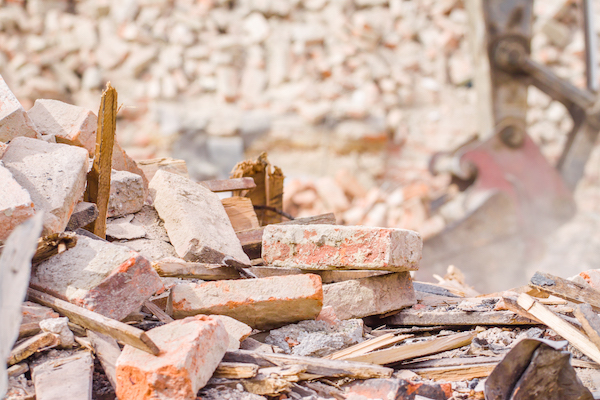Many times, people wonder why they should hire a demotion company. Typically people believe that it cannot be that difficult. The problem with that line of thinking is that there is so much more that goes into the proper demolition of a structure than simply bringing it down. Without the expertise of a licensed contractor, the risk of damage to other surrounding buildings is high. A demolition contractor also has the proper license and permits to do the work.
Demolition is a complex set of tasks involving structural dismantlement, site clearance, environmental remediation, salvage, recycling, and industrial recovery.
The demolition industry is continually making way for growth, revitalization and historic renovation around the world. Though demolition is an important part of the life of our cities and neighborhoods, most people don’t know very much about how demolition works.
Demolition is a highly sophisticated craft which involves the use of hydraulic equipment with specialized attachments, cranes, loaders, wrecking balls and in some cases explosives.
Most of the materials from a demolition project have a market value, and therefore are not considered waste. On many of the projects, 90% of this material is recycled, reused or salvaged. Typical commodities generated on a demolition project site include:
- Metals, including steel, iron, copper, bronze, brass, along with other exotic metallic commodities
- Insulating material
- Concrete and other aggregate materials including brick, porcelain, etc.
- Plasterboard
- Ceiling tiles
- Wiring and conduit
- Flooring and carpets
- Wood
- Soils
- Roofing materials
Industrial demolition is simply the dismantling of structures or facilities used in the production of goods and materials. This could include chemical plants, oil refineries, manufacturing facilities, or any other commercial site. These types of demolitions often involve the environmental remediation of hazardous substances that were part of the industrial/manufacturing process that could have potentially contaminated the site. Industrial demolition can be a complex undertaking involving sophisticated engineering, specialized rigging, and complex industrial hygiene requirements.
Commercial demolition is the whole or partial demolition of commercial properties such as shopping plazas, office buildings, hotels and the like.
Demolition contractors take great pride in their commitment to being good stewards of the environment. As most demolition contractors work in the towns and cities where they live, they work hard to improve the quality of life in these areas. Demolition of outdated or damage structures, environmental remediation of contaminated sites, asbestos abatement, and soil & facilities decontamination enhance economic development opportunities in these communities and help beautify a city or town.
Demolition contractors are some of the most regulated construction industry professionals. As they are working on structures that are often damaged by fire, weather, or structural deficiency, most demolition projects require permit review by local municipal building departments. As demolition contractors handle hazardous materials and toxic substances there are a host of municipal, state and federal environmental regulations that govern the industry’s operations. As demolition is a dynamic craft and contractors are dealing with a variety of structures, the industry’s health and safety regulations are very strong. Many states have their own health & safety rules and the Federal Government’s Occupational Safety & Health Administration’s (OSHA) Construction Standard (29 CFR 1926) contains a specific section on demolition operations.

